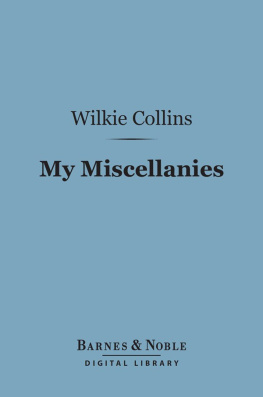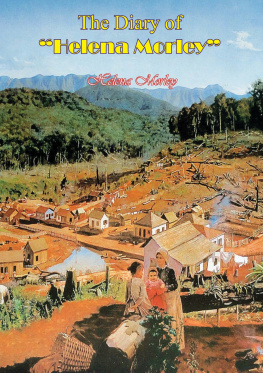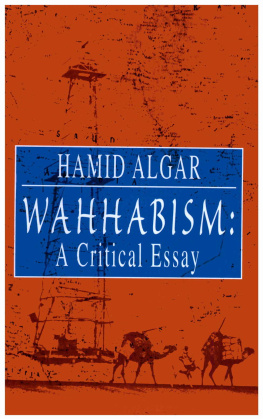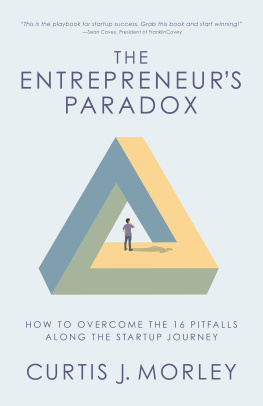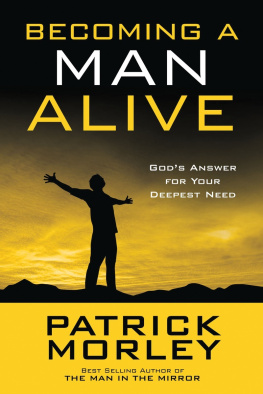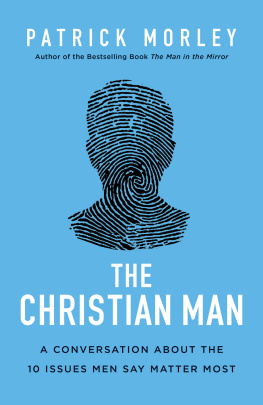John Morley - Critical Miscellanies (Vol. 2 of 3), Essay 2
Here you can read online John Morley - Critical Miscellanies (Vol. 2 of 3), Essay 2 full text of the book (entire story) in english for free. Download pdf and epub, get meaning, cover and reviews about this ebook. year: 2018, publisher: CreateSpace Independent Publishing Platform, genre: Science. Description of the work, (preface) as well as reviews are available. Best literature library LitArk.com created for fans of good reading and offers a wide selection of genres:
Romance novel
Science fiction
Adventure
Detective
Science
History
Home and family
Prose
Art
Politics
Computer
Non-fiction
Religion
Business
Children
Humor
Choose a favorite category and find really read worthwhile books. Enjoy immersion in the world of imagination, feel the emotions of the characters or learn something new for yourself, make an fascinating discovery.

- Book:Critical Miscellanies (Vol. 2 of 3), Essay 2
- Author:
- Publisher:CreateSpace Independent Publishing Platform
- Genre:
- Year:2018
- Rating:5 / 5
- Favourites:Add to favourites
- Your mark:
- 100
- 1
- 2
- 3
- 4
- 5
Critical Miscellanies (Vol. 2 of 3), Essay 2: summary, description and annotation
We offer to read an annotation, description, summary or preface (depends on what the author of the book "Critical Miscellanies (Vol. 2 of 3), Essay 2" wrote himself). If you haven't found the necessary information about the book — write in the comments, we will try to find it.
John Morley: author's other books
Who wrote Critical Miscellanies (Vol. 2 of 3), Essay 2? Find out the surname, the name of the author of the book and a list of all author's works by series.
Critical Miscellanies (Vol. 2 of 3), Essay 2 — read online for free the complete book (whole text) full work
Below is the text of the book, divided by pages. System saving the place of the last page read, allows you to conveniently read the book "Critical Miscellanies (Vol. 2 of 3), Essay 2" online for free, without having to search again every time where you left off. Put a bookmark, and you can go to the page where you finished reading at any time.
Font size:
Interval:
Bookmark:

CRITICAL
| PAGE |
| Birth and family descent |
| His youth at the Sorbonne |
| Intellectual training |
| His college friends: Morellet, and Lomnie de Brienne |
| Turgot refused to become an ecclesiastic |
| His revolt against dominant sophisms of the time |
| Letter to Buffon |
| Precocity of his intellect |
| Letter to Madame de Graffigny |
| Illustrates the influence of Locke |
| Views on marriage |
| On the controversy opened by Rousseau |
| Turgot's power of grave suspense |
| First Discourse at the Sorbonne |
| Analysis of its contents |
| Criticisms upon it |
| It is one-sided |
| And not truly historic |
| Fails to distinguish doctrine from organisation |
| Omits the Christianity of the East |
| And economic conditions |
| The contemporary position of the Church in Europe |
| Second Discourse at the Sorbonne |
| Its pregnant thesis of social causation |
| Compared with the thesis of Bossuet |
| And of Montesquieu |
| Analysis of the Second Discourse |
| Characteristic of Turgot's idea of Progress |
| Its limitation |
| Great merit of the Discourse, that it recognises ordered succession |
| Turgot appointed Intendant of the Limousin |
| Functions of an Intendant |
| Account of the Limousin |
| Turgot's passion for good government |
| He attempts to deal with the Taille |
| The road Corve |
| Turgot's endeavours to enlighten opinion |
| Military service |
| " transport |
| The collection of taxes |
| Turgot's private benevolence |
| Introduces the potato |
| Founds an academy |
| Encourages manufacturing industry |
| Enlightened views on Usury |
| Has to deal with a scarcity |
| His plans |
| Instructive facts connected with this famine |
| Turgot's Reflections on the Formation and Distribution of Wealth |
| Turgot made Controller-General |
| His reforms |
| Their reception |
| His unpopularity |
| Difficulties with the king |
| His dismissal |
| His pursuits in retirement |
| Conclusion |
Font size:
Interval:
Bookmark:
Similar books «Critical Miscellanies (Vol. 2 of 3), Essay 2»
Look at similar books to Critical Miscellanies (Vol. 2 of 3), Essay 2. We have selected literature similar in name and meaning in the hope of providing readers with more options to find new, interesting, not yet read works.
Discussion, reviews of the book Critical Miscellanies (Vol. 2 of 3), Essay 2 and just readers' own opinions. Leave your comments, write what you think about the work, its meaning or the main characters. Specify what exactly you liked and what you didn't like, and why you think so.

